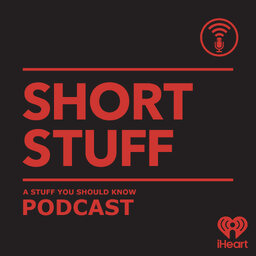What's with this "Internet of Things"?
You may have heard about the Internet of Things and not known what the term meant. It's basically a collection of object conected to your life and the internet. We're talking everything from your smart phone to your fitness tracker. Cool stuff, but fraught with privacy issues.
Learn more about your ad-choices at https://www.iheartpodcastnetwork.com
 Stuff You Should Know
Stuff You Should Know


